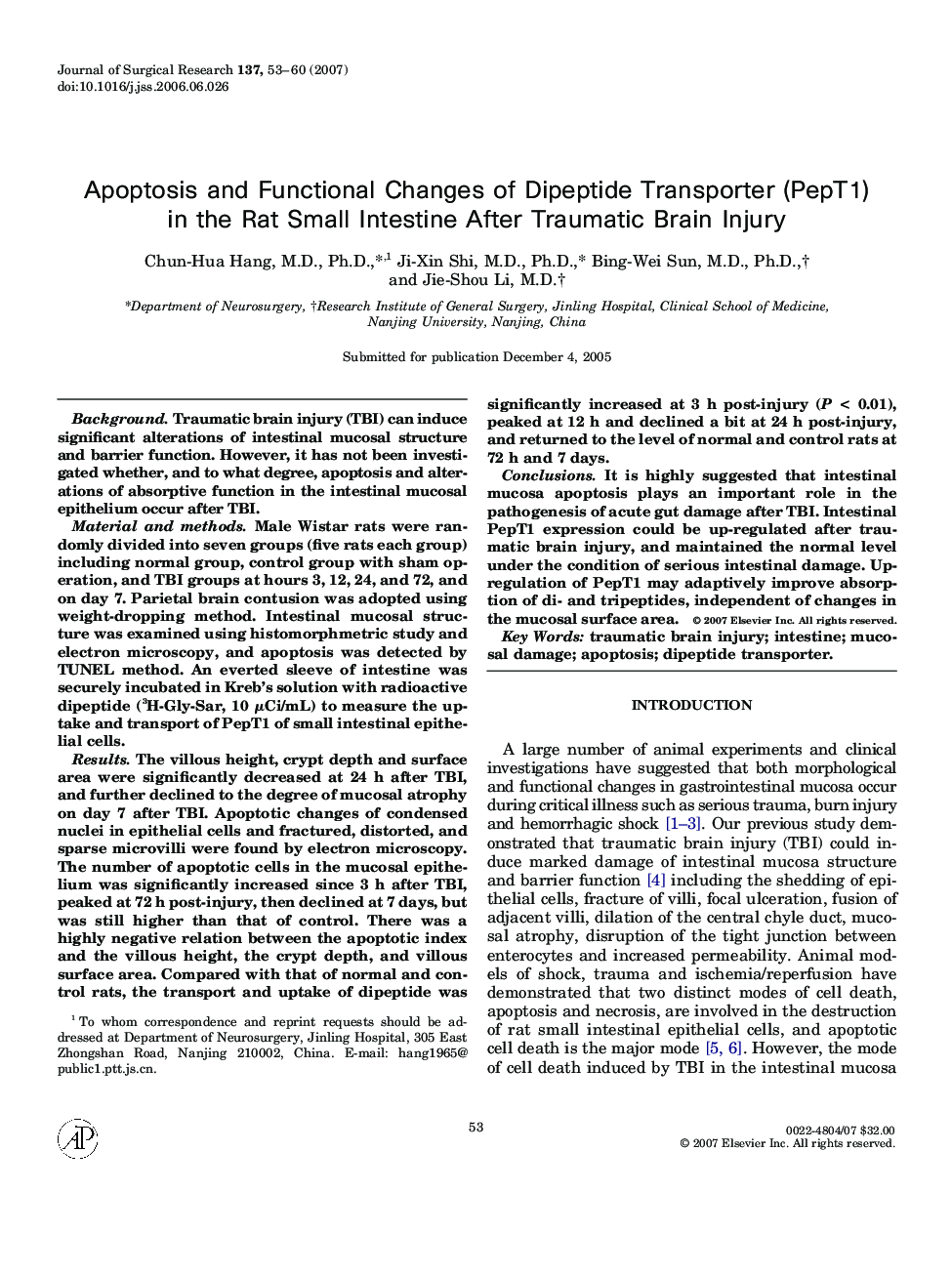| کد مقاله | کد نشریه | سال انتشار | مقاله انگلیسی | نسخه تمام متن |
|---|---|---|---|---|
| 4304815 | 1288515 | 2007 | 8 صفحه PDF | دانلود رایگان |

BackgroundTraumatic brain injury (TBI) can induce significant alterations of intestinal mucosal structure and barrier function. However, it has not been investigated whether, and to what degree, apoptosis and alterations of absorptive function in the intestinal mucosal epithelium occur after TBI.Material and methodsMale Wistar rats were randomly divided into seven groups (five rats each group) including normal group, control group with sham operation, and TBI groups at hours 3, 12, 24, and 72, and on day 7. Parietal brain contusion was adopted using weight-dropping method. Intestinal mucosal structure was examined using histomorphmetric study and electron microscopy, and apoptosis was detected by TUNEL method. An everted sleeve of intestine was securely incubated in Kreb’s solution with radioactive dipeptide (3H-Gly-Sar, 10 μCi/mL) to measure the uptake and transport of PepT1 of small intestinal epithelial cells.ResultsThe villous height, crypt depth and surface area were significantly decreased at 24 h after TBI, and further declined to the degree of mucosal atrophy on day 7 after TBI. Apoptotic changes of condensed nuclei in epithelial cells and fractured, distorted, and sparse microvilli were found by electron microscopy. The number of apoptotic cells in the mucosal epithelium was significantly increased since 3 h after TBI, peaked at 72 h post-injury, then declined at 7 days, but was still higher than that of control. There was a highly negative relation between the apoptotic index and the villous height, the crypt depth, and villous surface area. Compared with that of normal and control rats, the transport and uptake of dipeptide was significantly increased at 3 h post-injury (P < 0.01), peaked at 12 h and declined a bit at 24 h post-injury, and returned to the level of normal and control rats at 72 h and 7 days.ConclusionsIt is highly suggested that intestinal mucosa apoptosis plays an important role in the pathogenesis of acute gut damage after TBI. Intestinal PepT1 expression could be up-regulated after traumatic brain injury, and maintained the normal level under the condition of serious intestinal damage. Up-regulation of PepT1 may adaptively improve absorption of di- and tripeptides, independent of changes in the mucosal surface area.
Journal: Journal of Surgical Research - Volume 137, Issue 1, January 2007, Pages 53–60